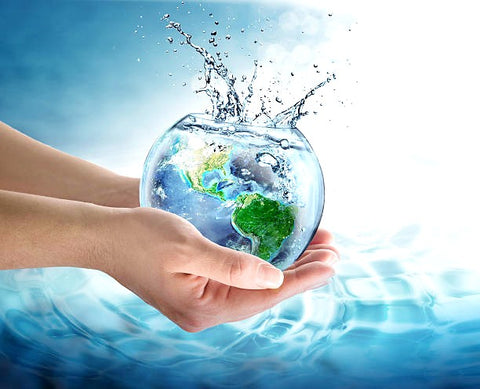- Get link
- X
- Other Apps
Title: Save Water: A Precious Resource for a Sustainable Future
Introduction:
Water is the essence of life, playing a pivotal role in sustaining all forms of life on Earth. As our planet faces numerous environmental challenges, one critical issue that demands immediate attention is the conservation of water. With increasing population, industrialization, and climate change, the world's freshwater resources are under tremendous strain. In this essay, we will explore the importance of saving water and discuss practical steps that individuals, communities, and governments can take to ensure the sustainable management of this precious resource.
The Significance of Water Conservation:
Water conservation is vital for several reasons. Firstly, freshwater is a finite resource, with less than 3% of Earth's water being freshwater, and only a fraction of that is accessible for human use. Additionally, millions of people around the world lack access to clean and safe water, leading to severe health and sanitation issues. By saving water, we not only preserve this resource for future generations but also help mitigate water scarcity and alleviate global water inequality.
Individual Responsibilities:
Every individual can make a significant impact by adopting water-saving habits in their daily lives. Simple practices, such as turning off faucets while brushing teeth, taking shorter showers, and fixing leaky pipes, can save substantial amounts of water. Installing water-efficient fixtures, such as low-flow toilets and showerheads, is another effective measure. Furthermore, practicing responsible irrigation techniques, like watering plants during cooler hours of the day, can significantly reduce water wastage in gardens and landscapes.
Educating and Raising Awareness:
Education and awareness play a crucial role in promoting water conservation. Schools, colleges, and community organizations can organize workshops, seminars, and awareness campaigns to educate people about the importance of water conservation and practical ways to save water. Through these initiatives, individuals can be empowered with the knowledge and motivation to adopt sustainable water practices.
Agriculture and Industry:
Agriculture and industry account for substantial water consumption globally. Farmers can adopt efficient irrigation techniques such as drip irrigation and precision farming to minimize water usage. Crop rotation and using drought-resistant varieties can also help conserve water. Similarly, industries can optimize their water use through recycling and reusing water in manufacturing processes, reducing wastage, and adopting eco-friendly technologies. Governments can incentivize and support these practices through policies and regulations.
Water Harvesting and Management:
Water harvesting and management systems can significantly contribute to water conservation efforts. Rainwater harvesting involves collecting and storing rainwater for later use in activities like gardening and household chores. Governments and communities can promote the installation of rainwater harvesting systems in homes and public buildings. Additionally, effective water management practices, such as monitoring and repairing leakages in water distribution networks, can conserve large volumes of water and reduce losses.
Conservation in Ecologically Sensitive Areas:
Preserving water in ecologically sensitive areas is crucial for maintaining biodiversity and supporting fragile ecosystems. Wetlands, rivers, and lakes are essential habitats for countless species, and their conservation is vital. Governments and environmental organizations should focus on protecting these areas from pollution, encroachment, and unsustainable water extraction practices. By safeguarding these ecosystems, we can maintain a delicate balance that benefits both humans and nature.
Conclusion:
Water is a finite and irreplaceable resource that sustains all life forms on Earth. Given the increasing strain on freshwater resources, it is imperative that we prioritize water conservation efforts. By adopting water-saving practices in our daily lives, educating others, and implementing sustainable strategies in agriculture, industry, and water management, we can make a positive impact on the preservation of this vital resource. Saving water is not only essential for our own well-being but also for the well-being of future generations and the health of our planet. Let us unite and commit ourselves to safeguarding water, for it is the k ey to a sustainable and prosperous future.
- Get link
- X
- Other Apps

Comments
Post a Comment